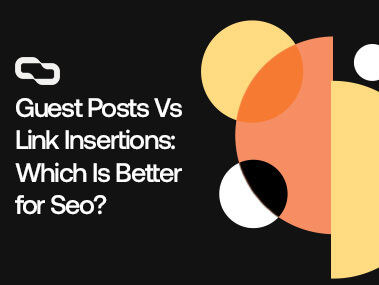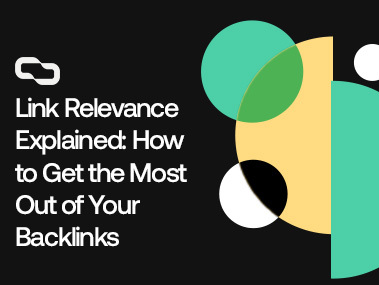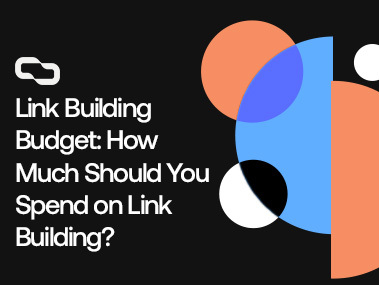Link Building Budget: How Much Should You Spend on Link Building?
Link-building is expensive.
You can expect to pay about $250 per link on average.
And you need hundreds of those to rank.
We can say even thousands if you're in a competitive niche like health or finance.
So, how much do you need to spend on link-building exactly?
Well, that's what we will cover in this article.
I'll go through how to determine how many links you need to rank and how much that will cost.
So without further ado, let's jump right into it.
Key Takeaways
- The best way to estimate your link-building budget is by analyzing your competitors.
- Start by identifying your current high-quality backlinks and comparing them with those of your competitors to get a feeling of how many links you need to rank.
- Once you have your link gap analysis, use our free link-building cost tool to know how much you should spend on links.
- The high cost of backlinks is attributed to the time and effort required for outreach, the expense of producing high-quality content, and the link demand in competitive SEO niches.
How Much Should You Spend on Links?
When it comes to link-building, there is no one-size-fits-all solution.
Every niche is different, and each business is unique.
That's why the best way to estimate your link-building budget is to look at your competitors.
For the purpose of this article, I'll pick a random keyword and demonstrate how many links you need to rank and how to calculate your link-building budget.
The keyword we'll be looking at is “Hobart dentist”.
The keyword difficulty is 17, so I'd say it's a fairly easy keyword to rank for.
But let's look at what's actually ranking before making any assumptions.
Yep, I was right.
The websites ranking at the top have very low domain ratings.
This means that with just a few backlinks, you can outrank them and get all these juicy leads.
Let's assume that we're the website ranking #7. Dr. Joseph Chau.
Throughout this section, I'll show you how much should Dr. Joseph spend on links to outrank his competitors.
1. Count How Many Good Links You Have
You don't want to buy more than you need, right?
If it takes 100 links to rank, I want to build exactly 100 backlinks, not 101.
For this reason, it's important first to identify how many quality links you already have.
There are plenty of tools out there that can help with auditing your link profile, like Moz, Ahrefs, or SEMrush.
I prefer ahrefs, so I'll use it throughout the article, but you can use any SEO tool you like.
Now, there are two ways to calculate how many good links a website has.
First, the easy way.
1. Plug your website into Site Explorer
2. Click on the backlinks report
3. Click on Best links and choose to show best links only
4. Click Show results
The report then will show you all the quality links this website has — based on predefined criteria.
You can change the criteria by clicking on Configure best link filter.
This isn't the most accurate way, but in my opinion, it gives you a pretty good estimation.
If you want a more accurate approach, you can filter the original backlinks report, and then manually check the links to assess their quality.
This can be very time-consuming, so I suggest you stick to the Best links report approach.
Ok, now the report tells us that we have only 3 quality backlinks pointing to our website.
The next step is to segment those links.
We'll just segment them based on DR — nothing crazy.
We'll put them in 3 brackets:
- DR 30-45
- DR 45-60
- DR 60+
So, we have 1 link in the DR 45-60 bracket and 2 links in the DR60+ bracket.
Let's write these numbers down and move to the next step.
2. Analyze Your Top Organic Competitors
The next step is to see how many good links our competitors have.
This should give us a pretty good idea of the link gap so that we can play our link-building campaign accordingly.
I'll analyze the top 3 competitors, which are:
- Island Dental
- Ian Gurner
- Crotty Dental
Let's start with the first one.
Looks like Island Dental has 10 high-quality backlinks.
They have 5 links in the DR30-45 bracket, 3 in the 45-60, and 2 in the DR60+ bracket.
Ian Gurner has 7 backlinks.
Only 2 links in the 45-60 bracket and 5 links in the DR60+ one.
Finally, Crotty Dental has 2 backlinks.
One in the DR45-60 bracket and one in the DR60+ bracket.
3. Take The Average
The next step is to sum all backlinks in each bracket and take the average (divide it by 3.)
So, the average competitor has 2 backlinks in the DR30-45 bracket, 2 in the DR45-60 bracket, and 3 backlinks in the DR60+ bracket.
Now, we — Dr Chau's website — have 1 backlink in the DR 45-60 bracket and 2 links in the DR60+ bracket.
This means that in order to beat our competitors, we need to build 2 DR 30-45 backlinks, 1 DR45-60 link, and 1 DR60+ link.
Yep, it's that simple.
Now, let's calculate how much will that cost.
4. Calculate The Cost
Based on our link-building cost calculator, this will cost us about $1,020.
And that’s it!
This is exactly how much money you should spend on links.
What Makes Backlinks So Expensive?
Now, let's address the elephant in the room: Why do backlinks cost a pretty penny?
I mean, they're just links, right?
Well, not exactly.
There's more to it than meets the eye.
1. Reaching Out Takes Time and Effort
Imagine you're throwing a party.
You don't just sit back and hope people show up; you send out invites.
The same goes for link building.
You have to reach out to other websites, pitch your content, and persuade them to link to you.
This outreach process is time-consuming and requires a dedicated effort, often from experienced professionals.
2. High-Quality Content Isn't Cheap
Most authority websites won't take crappy, AI-generated content.
In fact, if they do, we won't even consider building links on them.
Quality websites often have strict publishing guidelines in place, and you must follow them precisely to even have a chance of getting featured.
These guidelines often include things like content structure, length, company tone, grammar, and many more.
This requires experienced writers, and these writers aren't cheap.
3. Publishers Understand The Value of Backlinks
Getting a backlink from a high-authority site is like getting a shoutout from a celebrity.
It's a big deal.
And site owners know that.
They are aware of how much value their endorsement adds to your website.
This understanding turns backlinks into a premium commodity.
Publishers recognize they are not just giving you a useless link.
They are helping you make more money by ranking higher on Google.
So, they often charge accordingly, especially if their site has a significant audience or high domain authority.
4. The SEO Competition
In crowded niches, like health or finance, everyone's fighting for their spot in the limelight.
The competition is fierce, and everyone is trying to score those top-tier backlinks.
Higher demand equals higher costs.
It's simple economics.
5. SEO Expertise is a Specialized Skill
Let's not forget the role of SEO experts.
These professionals spend years honing their skills in link building, keyword research, and understanding search engine algorithms.
Their expertise is crucial in identifying the right sites to target, creating content that aligns with SEO best practices, and successfully placing links.
This specialized skill set is in high demand and, therefore, comes with a higher cost.
6. Long-term Relationship Building
Effective link-building isn't just a one-time transaction.
It's about building long-term relationships with other site owners and publishers.
This process involves regular communication, understanding the needs of the other party, and often providing value to them in various forms.
Building and maintaining these relationships require time and resources, adding to the overall cost of acquiring backlinks.
Agency vs In-House vs Freelancer
Deciding who should handle your link-building can feel like choosing your fighter in a video game.
Each has its strengths and weaknesses, and the best choice really depends on your specific situation.
Let's dive into the pros and cons of hiring an agency, building an in-house team, or working with freelancers.
1. Agency: The Full-Service Experience
Pros
- Expertise: Agencies are the experts. They have the know-how and tools to execute sophisticated link-building strategies.
- Time-Saving: With an agency, you're essentially outsourcing your entire link-building campaign. This frees up your time to focus on other aspects of your business
- Diverse Experience: Agencies often have experience across various industries, bringing a wealth of knowledge to the table..
- Consistency: They bring a level of consistency and scalability that's hard to match. Agencies have processes in place to ensure steady progress.
Cons
- Higher Cost: Quality comes at a price. Agencies may require a larger budget compared to other options.
- Less Direct Control: You're entrusting your link-building strategy to an external team, which can feel like you're relinquishing some control.
2. In-House: Keeping It Close to Home
Pros
- Control: With an in-house team, you have complete control over every aspect of your link-building efforts.
- Brand Understanding: Your team inherently understands your brand and can align strategies closely with your business goals.
- Long-Term Investment: Building an in-house team is a long-term investment in your company's SEO future.
Cons
- Resource-Intensive: It requires significant time and resources to hire, train, and manage a team.
- Limited Perspectives: Sometimes, being too close to the project can mean missing out on fresh, innovative approaches.
- Scalability Issues: Scaling up can be challenging if you experience sudden growth or need to ramp up your efforts quickly.
3. Freelancer: The Flexible Option
Pros
- Cost Flexibility: Freelancers can be more budget-friendly, especially for specific, short-term projects.
- Specialized Skills: You can pick freelancers with niche expertise in link building, offering targeted skills for specific campaigns.
- Adaptability: Freelancers can quickly adapt to changing needs and can be scaled up or down as your link-building strategy evolves.
Cons
- Reliability Concerns: Finding reliable freelancers can be hit or miss.
- Coordination Effort: Managing multiple freelancers can be time-consuming and requires strong coordination skills.
- Inconsistency: Without the structure of an agency or in-house team, results can vary significantly.
Ultimately, the choice between an agency, in-house team, or freelancer for link building depends on your budget, business goals, and desired level of control.
Agencies bring expertise and comprehensive service, in-house teams offer brand-focused consistency, and freelancers provide flexibility and specialization.
Weigh these factors carefully to determine which path aligns best with your link-building objectives.
FAQs
How Much Should I Pay for a Link?
The cost of a single link can vary significantly, depending on factors such as the quality of the website, its relevance to your niche, and the link's potential traffic.
Generally, prices range from $100 to $500 per link, but high-authority sites may charge more.
How Much Should I Pay for Link Building?
Link-building costs depend on the strategy used, such as content creation, outreach, and guest posting.
Typically, businesses might spend between $1,000 to $10,000 monthly on link building, considering the number and quality of links, as well as the complexity of the campaign.
How Much Does a Good Backlink Cost?
The cost of a good backlink is influenced by the website's authority, relevance, and the traffic it can bring. Quality backlinks from reputable sites may cost between $200 to $600.
However, prices can soar for links from top-tier websites with high domain authority and substantial traffic.
Conclusion
If you follow this guide, you should be able to calculate how much you should spend on links quite easily
You just need a link-building tool, a good eye for detail, and 10-20 minutes of your time.
If you don't have the time or the tools, you can hire us to do it on your behalf.
Our link report service is super affordable.
And once your report is done, you'll get a free consultation call with our CEO Alejandro Meyerhans, or Taylor Kimball to go over your report and discuss the optimal strategy.
Plus, you get your money back to spend on links.
So, it's basically free!
Find out your exact cost of ranking for your dream keyword
Let’s get you ranking now
If you want the team at Get Me Links to help you get more traffic



